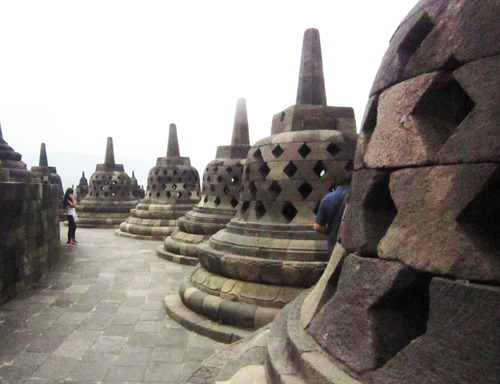Friday Forum
Your views on the news
DAVID SOUTHWELL
The recent ruckus over the ‘Budgie Nine’ is a reminder that however globalised the world might sometimes seem, cultural assumptions and understandings cannot be blithely assumed to be universal.
This was a harsh truth learnt by the young Australians who were arrested, detained for four days but fortunately released by a judge after they publicly stripped down to display ‘budgie smuggler’ swimwear emblazoned with the Malaysian flag following an FI race in Kuala Lumpur.
In the words of Foreign Minister Julie Bishop “a foolish prank or Aussie blokey behaviour in Australia can be seen very differently in another country”. The men faced a possible two-year jail term over charges of “intentional insult” and public indecency.
Last week I returned from a trip to Indonesia sponsored by the Forum for East Asia-Latin American Cooperation (FEALAC), a forum which promotes cross-cultural understanding between Asian countries and Latin American ones.
On my trip there were media and other communicator representatives from Asia-Pacific countries including New Zealand, Japan, Korea and China.
Indonesia is making a major push to attract people to see its cultural attractions. But this leads to questions of whether what is culturally ‘authentic’, valuable or unique can become compromised by the influx of tourists.
For most Aussies a visit to Indonesia means going to Bali, where around Kuta beach you can use your ATM card at the Commonwealth Bank branch, step into the multiple bars showing Australian sports and generally eat, dress and behave as you might on the Gold Coast.
Of course, this is not the sum of Bali for visitors. Many go to experience the heady mash-up of predominantly Hindu and Buddhist influences that find expression in the island’s multitude of temples and retreats.
Yet on Kuta beach itself, where the hawkers of drinks and souvenirs trudge between the quickly reddening sunbakers sitting alone or little clumps, it can seem as if the area has been colonised by an invading force of the prostrate and pasty white.
Perhaps this sense of being effectively everywhere but nowhere was a feeling common to the ‘Budgie Nine’ Australian camp followers of the FI travelling troupe. They may have imagined themselves in an insulated floating bubble of permissive Westernised racing ritual, where only the circuit’s background scenery is interchangeable.
However, this sense of abstraction is never wholly true as I discovered on a previous trip to Bali, late on a Sunday as I was leaving Kuta beach to get ready to catch my flight back to Australia.
As the sparsely spread out sunbakers retired to the beachside bars and the hawkers finally put down their loads I noticed convoys of minivans pulling up at the beach.
In a way reminiscent of the classical circus clown car, out of each of vehicle tumbled a seemingly impossible number of Balinese and they headed to the beach.
Soon it seemed the long stretches of sand were completely populated with Balinese, eating homemade snacks out of Tupperware, wading into the water while dressed in full modest streetwear attire with their jeans rolled up or just strolling and enjoying the scene.
There were balls being kicked around and lanes were drawn for children to run races and laughingly tumble into the sand at the finish line.
It was as if having relinquished the beach to the Western tourists during the heat of the day, the Balinese had come to communally reclaim it in, what to my mind, was the much more pleasant cool of the evening.
This totally unexpected glimpse of Balinese life remains indelibly for me the favourite of my memories from two visits there.
It shows that however homogenised we may begin to the think the world is there remains both delight and, as Australians in Asia have discovered, also danger in assuming that everyone is really just like us or wants to become so.
What times have you been caught out, pleasantly or unpleasantly, in forgetting your cultural assumptions may not be everyone’s?



Comments are closed.